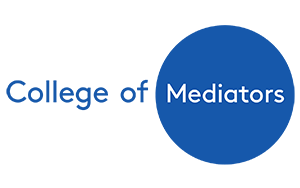Blogs, apparently, are usually written in a personal style. So I’ll approach my contribution to the Family Mediation Week website in a more informal way than I might normally write about family mediation. And what is personal to me at present? A bit of timely taking stock, because I’ll be finishing my time as an independent member of the Family Mediation Council in three months, at the Council’s April meeting.
Family Mediation Week celebrates the growing part mediation plays in helping people find a constructive way through separation and divorce, giving them the tools to deal with difficult decisions about resources and the ongoing shared care of children. So I am pleased to be able to say something about the part the Family Mediation Council plays in all this, and especially about its achievements over the last few months.
The Council’s most important role is to protect the public by ensuring that it is served by family mediators practising to a proper and reliable standard. Family mediators come from different backgrounds and work in different organisations – the Family Mediation Council brought these organisations together to create a common standards framework. It’s been a stimulating and sometimes lively business; I’ve certainly learned a lot in the process. And – much encouraged by the support of the Ministry of Justice – last year we progressed past a significant milestone.
Family mediators now have a Family Mediation Standards Board, which has got off to a really cracking start. There is now a shared professional structure for all family mediators, which I believe makes good sense and will serve the public and family mediators well. The Standards Board works under the Council, but it operates with substantial independence – it is registering mediators, it will ensure that they practice appropriately, and that they are properly trained and supported. The organisations which make up the Council cannot have day-to-day responsibility for this work – they are too close to it. But through the Council they will make sure that the work is done.
This structure means that the public and family mediators may not hear much about the Council itself in the future, at least when it comes to ensuring that there are good standards of professional practice. The Council’s role will be a background one; it will be less conspicuous than the Standards Board. And this is an achievement. Given this self-effacing intention the achievement is clearly not one which will be noticed widely – but developing professional standards is not the stuff for tabloid dramas anyway. However, the structure created will enable family mediation to offer a more solid service and to attract more solid support. And that is good, because family mediation is A Good Thing – it helps people deal better with difficult situations and circumstances. And the Council will have helped get mediation more established, so it will have done A Good Thing too.
I’m not a family mediator. But I have now worked with family mediators for some years. And I know they are a dedicated bunch, absolutely determined to see that their commitment to a better way of resolving disagreements and disputes is taken forward. There’s a lot involved in that process, including complicated questions of resources, establishing the right organisational frameworks, and developing greater awareness. But getting the right standards in place is a part of the jigsaw. And if it turns out that I have helped that process along, I shall step down from the Council with my own feeling of achievement.
Hugh England
Chair, Family Mediation Council



